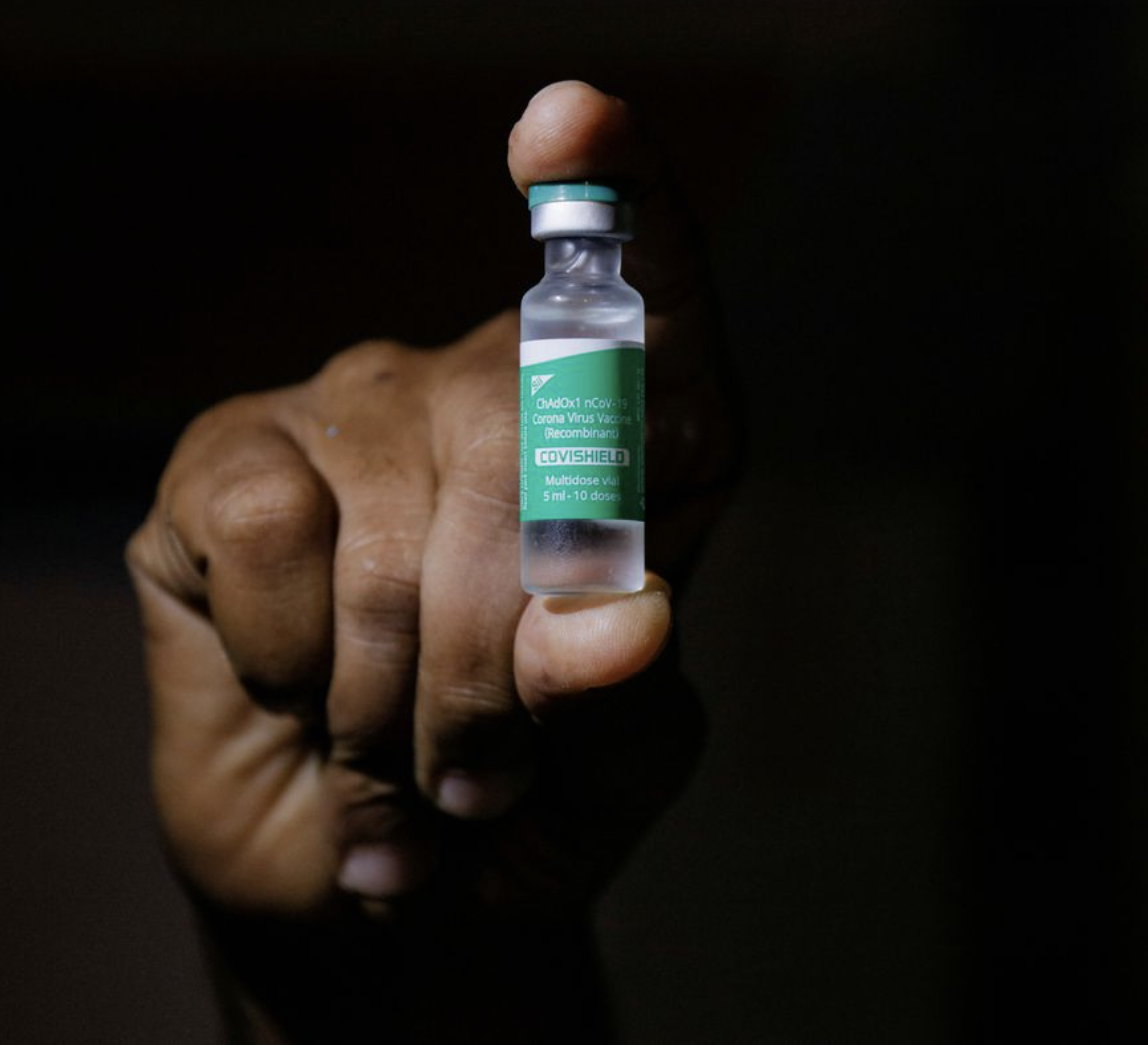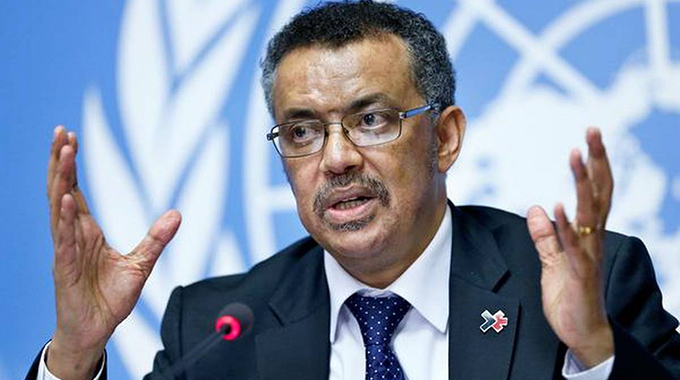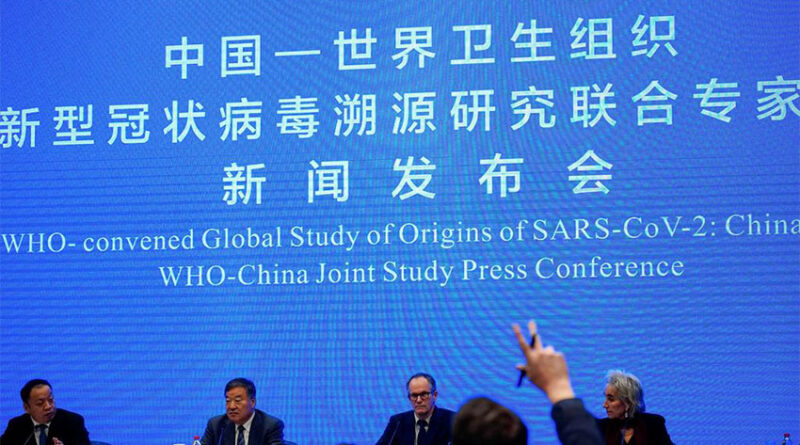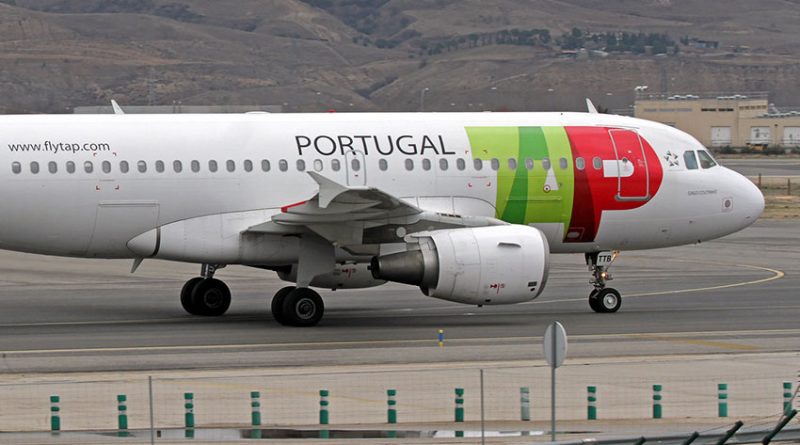Many Africans who have received their first COVID-19 vaccine do not know when they will get a second shot because deliveries are delayed, the continent's top public health official said on Thursday.
“We cannot predict when the second doses will come and that is not good for our vaccination programme,” John Nkengasong, the head of the Africa Centres for Disease Control and Prevention (Africa CDC), told reporters on Thursday.
Africa lags behind most other regions in COVID-19 vaccinations, with just less than 14 million doses having been administered on the continent of 1.3 billion, according to the Africa CDC.
Ghana, for example, has administered around 742,000 doses of the 815,000 shots it has so far received and will run out by the end of next week.
"Even if Ghana had the money, they will not know where to go get the vaccine, that’s the challenge," said Nkengasong.
So far, the majority of the vaccines available in African countries have been delivered via the World Health Organization-backed COVAX facility. COVAX aims to deliver 600 million shots to some 40 African countries this year, enough to vaccinate 20% of their populations.
The majority of those doses are AstraZeneca (AZN.L) shots produced by the Serum Institute of India (SII). But last month, India suspended its exports to meet rising domestic demand amid a surge in COVID-19 cases.
That has caused great uncertainty for Africa's vaccination rollout.
The African Union signed a deal last month with Johnson & Johnson (JNJ.N). read more But those doses will not begin arriving until the third quarter, and Nkengasong said last week that Africa would find it hard to bridge the gap in the meantime.
"We are in a bind as a continent," he said on Thursday. "Access to vaccines has been limited for us."
He said he hopes India, where new infections have topped 200,000 a day, will lift its restriction as soon as possible.
Speaking about the delays in shipments of more doses via COVAX from India, Richard Mihigo, immunization programme coordinator for the WHO in Africa, said that COVAX was working to ensure that countries that received their first instalment of vaccines in early March would also soon receive their second instalment.
People who have received their first jab are already benefiting from some protection from the virus, the Africa CDC's Nkengasong said, and he urged nations to use their doses before they expire.
On Tuesday, a South Sudanese government official told Reuters that it would not use the 59,000 vaccines it had received last month as a donation from the MTN Group (MTNJ.J), a South African mobile operator. The vaccines expired on April 13, the official said.
And on Wednesday, a health official in Malawi said it would destroy more than 16,000 vaccines it had received via the same donation scheme because they had expired, Agence France-Presse reported.
Nkengasong said that SII, manufacturer of the AstraZeneca doses in question, had told the Africa CDC that the expiry date could be extended to June or July. But he said the disease control body had urged African governments to use the relatively small number of doses as quickly as possible. He told reporters he had not heard of Malawi's decision.
Our Standards: The Thomson Reuters Trust Principles.
THERE is a “shocking imbalance” in the distribution of COVID-19 vaccines worldwide and most countries do not have anywhere near enough shots to cover health workers and others at high-risk, WHO Director-General Tedros Adhanom Ghebreyesus said yesterday.
More than 700 million jabs have been administered worldwide against the disease, but 87% have gone to high income or upper middle-income countries, with low income countries receiving just 0.2%, he said.
“On average in high-income countries, almost one in four people has received a COVID-19 vaccine. In low-income countries, it’s one in more than 500,” Tedros told a briefing.
The COVAX facility has delivered nearly 38.4 million doses of COVID-19 vaccines to 102 countries across six continents, six weeks after it began to roll out supplies, the GAVI vaccine alliance and WHO said on Thursday. It aims to deliver more than 2 billion doses this year but has faced delays.
“We hope to be able to catch up during April and May. The problem is not getting vaccines out of COVAX, the problem is getting them in,” Tedros said, decrying the scarcity of supply.
The AstraZeneca shot – the mainstay of the COVAX programme so far – has been hit by safety concerns after reports of blood clots in some recipients.
Australia said on Friday it had ordered more alternatives for the AstraZeneca vaccine, setting back its vaccination rollout, and Hong Kong delayed deliveries of the shot amid concern about a possible very small risk of rare blood clots.
GAVI CEO Seth Berkley, who asked whether COVAX was negotiating for more doses of the vaccine being shunned by some countries, said that the Anglo-Swedish company’s supply chain had “picked up”.
He hoped that the supply of AstraZeneca vaccine made by the Serum Institute of India – whose doses are now being kept domestically for use against an accelerating epidemic – would improve over time.
“As countries decide they are going to prioritise one vaccine or another that may free up doses, and in doing we will try to make sure those doses are made available without delay if countries are willing to make that happen,” Berkely said.
Source - Thomson Reuters Foundation
A joint China-World Health Organization (WHO) study into COVID-19 has provided no credible answers about how the pandemic began, and more rigorous investigations are required – with or without Beijing’s involvement, according to a group of international scientists and researchers.
The joint study, released last week, said the likeliest transmission route for SARS-CoV-2, the virus that causes COVID-19, involved bats and other wildlife. It all but ruled out the possibility it had leaked from a laboratory.
In an open letter, 24 scientists and researchers from Europe, the United States, Australia and Japan said the study was tainted by politics.
“Their starting point was, let’s have as much compromise as is required to get some minimal cooperation from China,” said Jamie Metzl, senior fellow at the Atlantic Council think tank, who led the drafting process for the letter.
The study’s conclusions were based on unpublished Chinese research, while critical records and biological samples “remain inaccessible”, the letter said.
Claims by WHO Director-General Tedros Adhanon Ghebreyesus that China has withheld data have been rejected by Liang Wannian, China’s senior COVID-19 expert. Liang also appeared to rule out any further joint investigations in China.
Metzl said the world might have to “revert to Plan B” and conduct further investigations without China’s involvement.
China has rejected allegations that SARS-CoV-2 leaked from a research laboratory in Wuhan, the city where COVID-19 was first identified.
The joint China-WHO study said the lab leak theory was “extremely unlikely”, saying there was “no record” that any laboratory had kept SARS-CoV-2-related viruses. Tedros said more research was required to “reach more robust conclusions”.
But Metzl said China should disclose information that would allow the lab-leak hypothesis to be disproved.
“China has databases of what viruses were being held… there are lab notes of the work that was being done,” he said.
Responding to the letter on Thursday, foreign ministry spokesman Zhao Lijian said its “purpose was self-evident” and that countries like the United States, not China, we're guilty of politicising the inquiry into COVID-19’s origins.
“They insist on politicising the issue of traceability, damaging and disrupting China’s cooperation with the WHO, discrediting China and publicly challenging the independence and scientific conclusions of scientists,” he said.
Source - Thomson Reuters Foundation
PORTUGAL has extended restrictions on travel via land and sea to Spain that had been due to end this weekend until April 15 as it works to contain the spread of COVID-19.
The two countries imposed the restrictions on January 28.
The interior ministry said the restrictions would remain in place for a further 11 days, adding that the measures did not prevent citizens or residents of Portugal from entering the country.
Vehicles transporting goods, emergency vehicles and seasonal border workers are also exempt.
Nationals from Britain, Brazil and South Africa – where more contagious coronavirus variants were first detected – or any country with an infection rate above 500 cases per 100,000 people must quarantine for 14 days if they have entered via the land border, the statement said.
Portugal, which has so far reported 780,322 COVID-19 cases and 16,879 deaths, is slowly lifting some other restrictions after a three-month nationwide lockdown came into force early this year.
Meanwhile, Greece said on Sunday it was extending restrictions on domestic flights until April 12 and on international flights until April 19 as the number of new infections there continues to rise.
Source - Thomson Reuters Foundation




